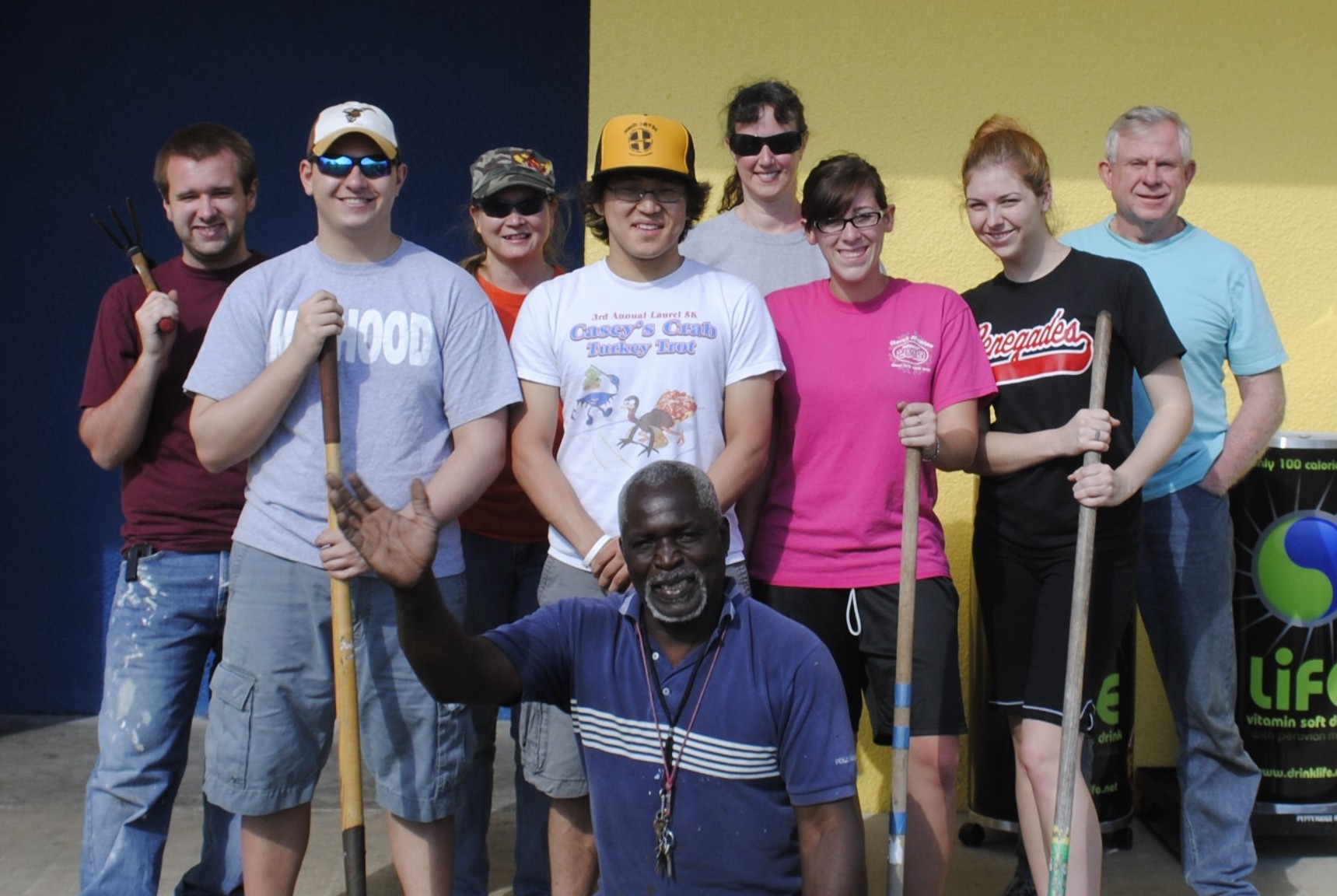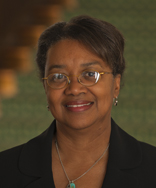
By: Ariel Grove
This March, Hood students will participate in any of six alternative spring break trips, four of which are organized by the chapel, one by the student organization Students Helping Honduras (SHH), and one by Provost Katherine Conway-Turner.
Rev. Beth O’Malley, dean ofthe chapel, and her graduate assistant, Sarah Johnston, have provided students with a variety of alternative spring break trips.
One group of students will go to Fort Lauderdale and Immokalee,Fla.where they will work alongside volunteers from local organizations to serve the homeless and migrant workers.
Another group of students will travel to Whitakers,N.C.to serve at an educational center for justice advocacy.
A third group will work with Hood’s chapter of Habitat for Humanity on the Gulf Coast. The fourth trip organized through the chapel will participate in what O’Malley is calling a “Staycation” here in Frederick where students will volunteer at local agencies such as Centro Hispano.
A fifth alternative spring break trip will be led by Hood’s chapter of SHH. Students serving in Honduras will work with communities to build schools for children.
Conway-Turner will lead the sixth option for an alternative spring break trip. She has traveled to Haiti many times, but for the first time this spring break, she will bring Hood students with her.
The group traveling to Haiti with Conway-Turner will volunteer with the organization H.O.P.E. to work with Haitians in four different areas: health care, sanitation, reforestation and education.
Each service site provides students not only with the opportunity to work but also to learn from the agencies with which they partner. For example, students on the Florida trip will support the Immokalee Workers Project while learning about issues of social justice related to migrant workers, and the North Carolina group will stay at the Franklinton Center at Bricks, an educational facility emphasizing justice advocacy.
O’Malley believes that alternative spring break trips fulfill Hood’s motto, Corde et Mente et Manu (Heart and Mind and Hand) because students are given the opportunity to dedicate their whole selves to altruistic service and grow as a result.
Senior Ethan Chase went on alternative spring break trips to the Franklinton Center during his freshman and sophomore years at Hood and plans to go again this spring.
“The time we spent at the Center was ultimately more than just the physical work we did,” he said. “I think that anyone who has attended this trip will understand that the true benefit of the N.C. break is the wider perspective we gain on the nature of race relations in our own communities, as well as understanding how we ourselves can begin to break down walls of all kinds,” said Chase.
Johnston, who attended the same trip, agreed.
“When you have the opportunity to learn something about another person and you reflect on that, it usually leads to learning something new about yourself,” she said.
According to O’Malley, another key benefit of alternative spring break trips is the opportunity it provides for building relationships with other students, faculty members and the local people.
O’Malley added that alternative spring break trips are a great way for commuters to get connected with other students. Trips through the chapel are open to undergraduate students, gradutate students, commuters and residents, as well as a few faculty and staff members.
Senior Monica Chickering, president of Hood’s student chapter of Habitat for Humanity, participates in the planning for the Gulf Coast trip.
“It will be my eighth trip to the area and the third one with Hood. We work hard while we are there but have a great time. I love getting to know more about my peers while working side-by-side with them as we create something to help someone else,” said Chickering.
Students traveling to Honduras or Haiti have the unique opportunity to build relationships with people from those countries. Working alongside local Hondurans is a key component to what the organization SHH does.
“It’s been proven that when a community has a say in the project, they’re more likely to sustain it because they invested part of themselves in it,” said senior Hilary Lawch, president of SHH.
Conway-Turner’s hope is that students will begin a project Hood students can continue to work on during each successive alternative spring break trip.
“I really believe strongly in providing international experiences for students. We live in a really global world,” Conway-Turner said.
The Florida trip costs approximately $450 plus the cost of airfare. The North Carolina trip costs approximately $375. The Frederick “Staycation” costs under $100.
The Habitat for Humanity Gulf Coast trip will end up costing approximately $500 to $600, which will include the cost of airfare.
The Honduras trip costs approximately $650 plus the cost of airfare and a $35 exit fee to leave Honduras. The trip to Haiti costs $1500.
Hood does provide a few need-based scholarships to go on alternative spring break trips.
SHH organizes fundraisers for students going on the trip,and will also be partnering with the Student Education Association to raise money within Frederick County public schools for construction projects in Honduras.
The chapel will be holding a fundraiser around Valentine’s Day to sell free trade chocolates.
O’Malley would like students who are interested in signing up for alternative spring break trips through the chapel to do so as soon as possible.
Students who are going on the trip to Haiti were required to sign up before the winter break. Anyone interested in going next spring should begin looking for information during the fall semester and contact the provost.
Conway-Turner said that visiting Haiti makes her more aware of what is really important in life: “being around people you love, making a difference in the world, and helping the person next to you.”
She added that one of the most gratifying things for her is when she sees the service work a person does inspire someone else who has never served or donated and they begin to look for ways to help others.
“You go on these service trips with the idea of serving others, and you are,” Lawch said. “But in addition, you are, in a way, gaining something yourself, whether it’s a stronger ability in leadership or a sense of perspective (something that’s different than what you know) or even basic skills such as construction skills, learning to make cement…not to mention the bond you create with people when you’re working side-by-side.”
Note from the editor:
The following quote is an addition to the story entitled “Alternative Spring Break Trips Offer New Volunteering Opportunities to Students” in the Feb. 9 edition.
“We appreciate Ariel Grove’s article highlighting the alternative break trips which appeared in the last edition of the newspaper. While fundraisers provide some financial support to trip participants, extra money comes from several generous Hood donors. I’d like to acknowledge financial support for [alternative] breaks by Dr. Volpe, Dean White, Dr. Conway-Turner, Student Life and the Chapel offices. All of these groups have provided money so that more students are able to afford to participate in our service/learning trips.”
Rev. Beth O’Malley
McHenry Dean of the Chapel




Be the first to comment